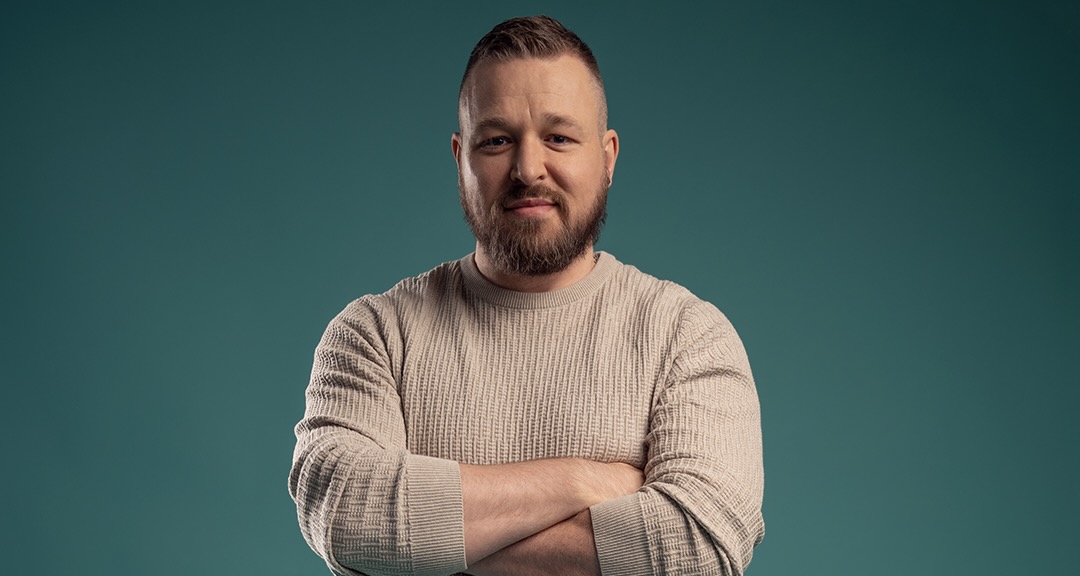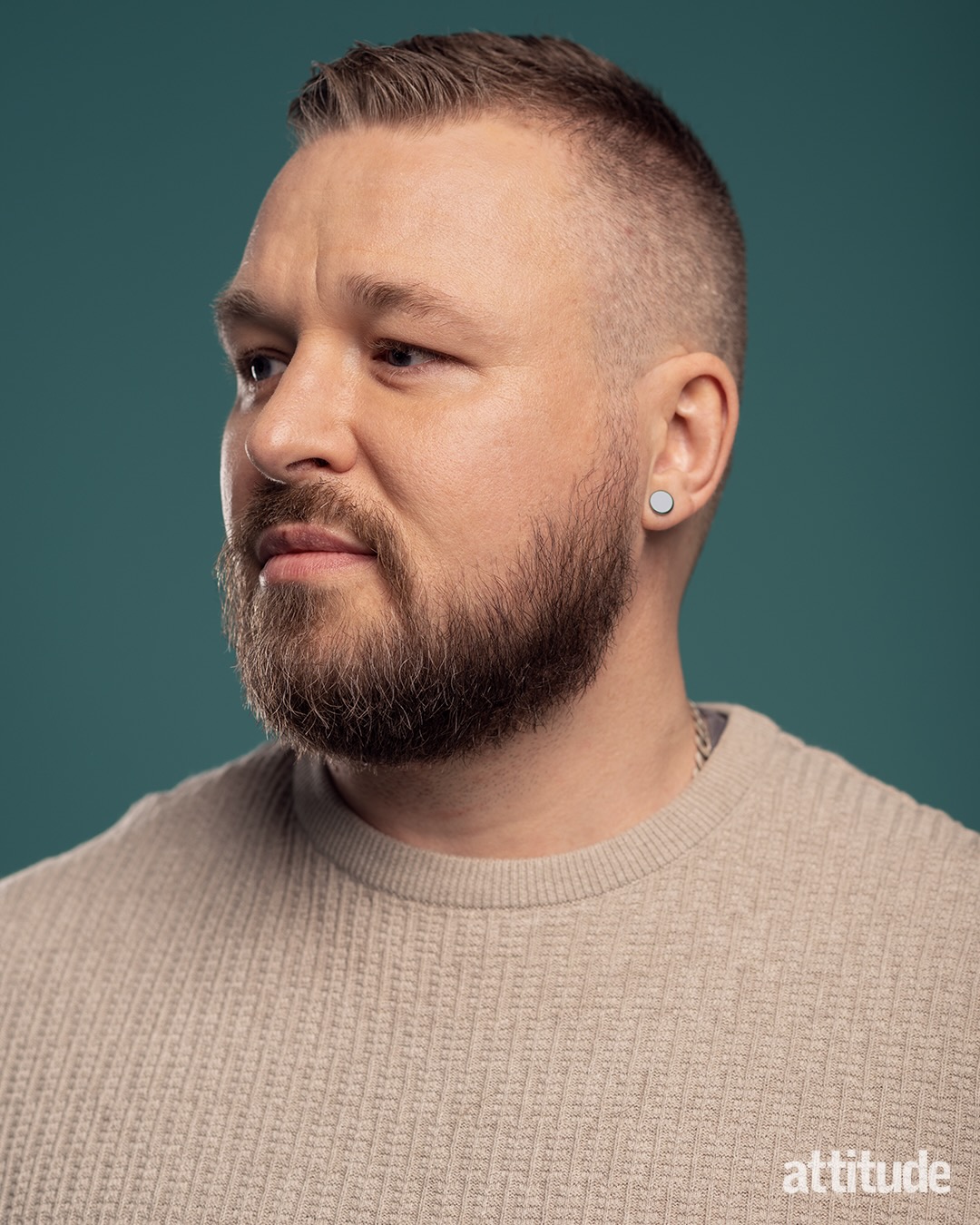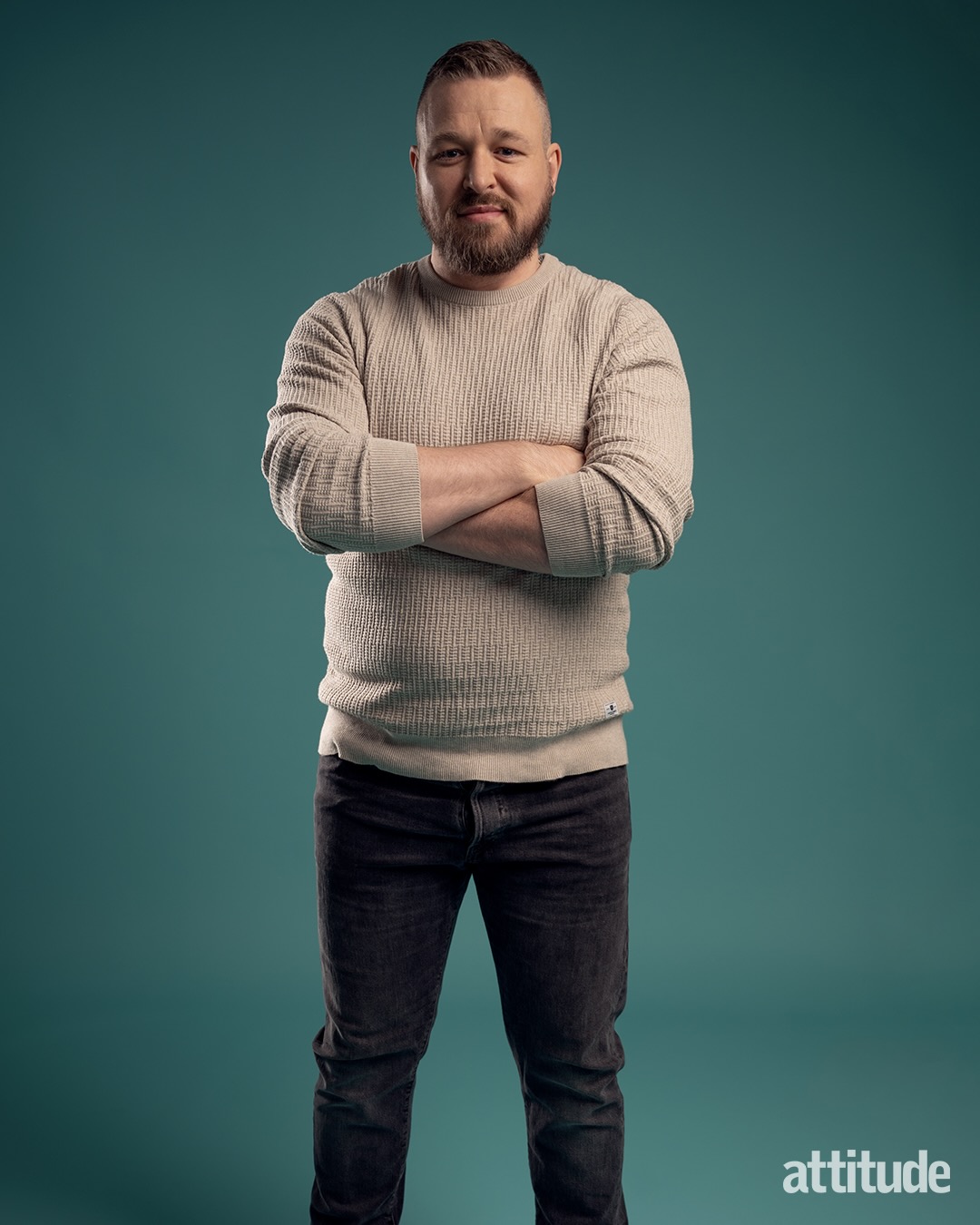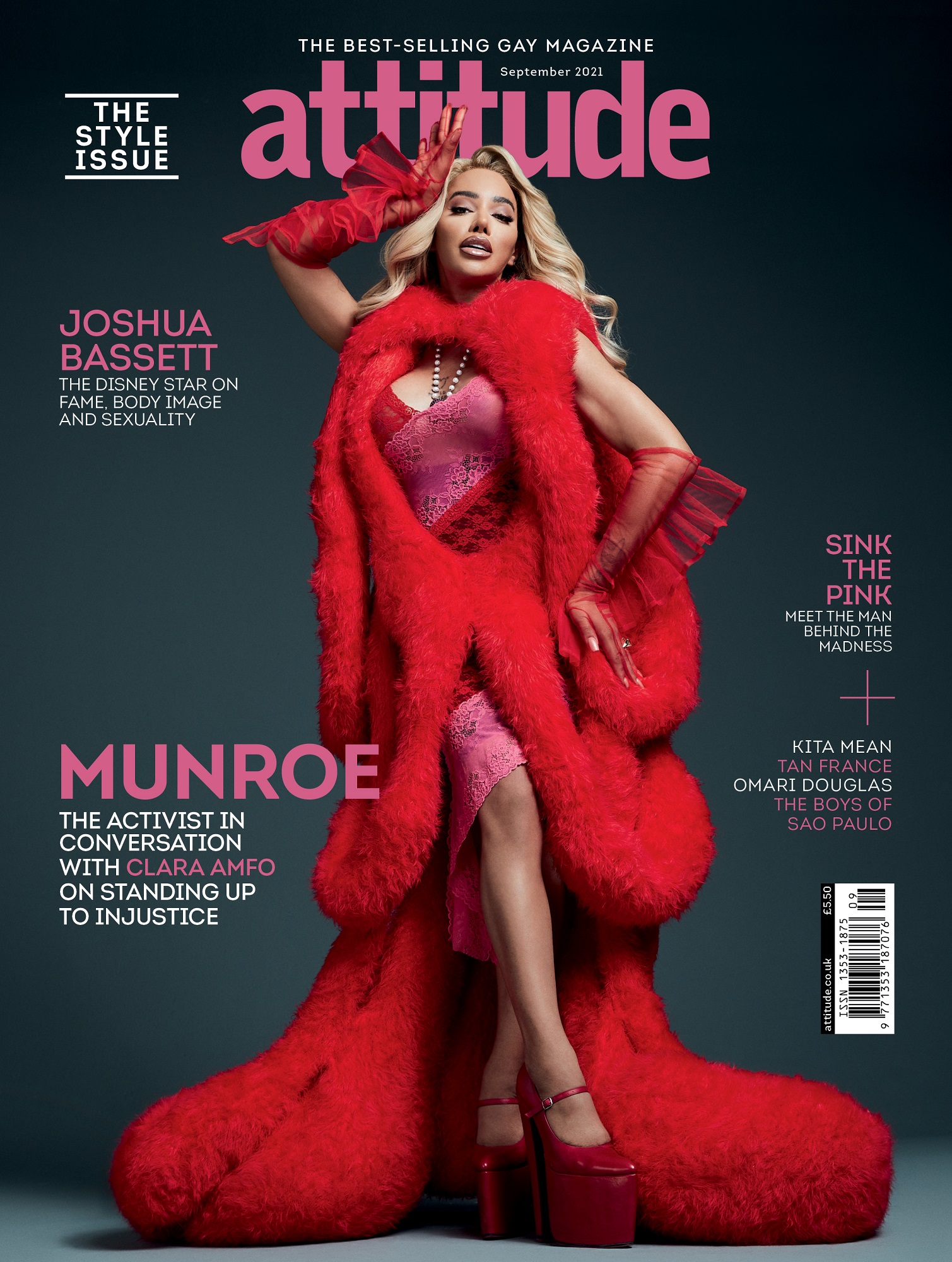David Paisley is leaving Scotland after threats and abuse: ‘I stopped feeling safe at my home’
The actor and Attitude Pride Award winner says the abuse he's received has caused panic attacks, anxiety and depression.

Words: Alastair James; pictures: Markus Bidaux
The LGBTQ rights activist and actor, David Paisley, has announced that he’s moving and plans to leave Scotland following abuse from people and on social media.
The River City actor, who received an Attitude Pride Award earlier this year for his work combatting transphobia, announced on Tuesday (31 August) that he was leaving Scotland as he no longer feels safe in his home.
David has taken a very public stance in defence of LGBTQ rights, which has often led to him being targeted by vicious and hateful trolls.
“I stopped feeling safe at my home”
So I’ve made quite a big and difficult decision.
I’ve decided to leave Scotland, in part because I no longer felt safe in my home.
I love Scotland, and I’ve so much love for Glasgow. I think Scotland has an amazing future. I just have to do what’s right for me and my wellbeing.
— David Paisley – Man at Bus Stop (@DavidPaisley) August 31, 2021
Speaking to Attitude, David says he’s been mulling over this situation for a while. “I had some opportunities come up in Scotland and elsewhere and had to decide where I wanted to stay. I’m very happy in Glasgow and if it was possible, I would have loved to stay in Scotland.
“Unfortunately, due to abuse and threats I’ve had relating to where I live, I stopped feeling safe at my home in Glasgow, and that’s meant making the decision to leave and make my home outside of Scotland.”
He adds that it was a tough decision to make, and he loves his home and Scotland. Attitude last spoke to David in June when he received an Attitude Pride Award. He spoke candidly about his experiences with getting abuse online, which have left him with severe anxiety.
At the time he said: “It had a really difficult impact on my mental health and wellbeing. I’ve also experienced harassment at my workplace. I had panic attacks. I couldn’t leave the house. I didn’t want to go back to work. I had to get help from the local mental health team, and try and get support.”

“There were accusations that I was a paedophile, and that I abused women and children. There were points where I considered taking my own life, I felt that the environment was so oppressive. My childhood was marked by abuse, so to see people freely accuse me of that kind of behaviour as if that’s an OK thing to say about a gay man, caused me a lot of emotional difficulty.”
Things haven’t changed. Now he says he’s been made aware of messages online claiming to know his address and that it’s been published online. Threats have also been made. “I sent them to the police and following that I had to leave my home for my own safety. I’ve since been able to return but the anxiety and stress of worrying about whether people know where I live and intend me harm has made living here really challenging.”
He says the whole situation has caused him to have panic attacks, anxiety and depression. “I’m quite honest about my mental health and I think it’s important to speak up and let people know that it’s OK to struggle and ask for help if you need it. Asking for help with my mental health was one of the best decisions I’ve ever made.”
“You’ll always have my support and love”
Despite the torrential abuse, David says social media can be a positive place, exemplified by the outpouring of support since his announcement on Tuesday. “Och, people are really lovely. I am really grateful for people’s kindness and support. I also have a really good support network of friends around me, which helps a lot.”
“I’m really hopeful that things will begin to change for the better. In 2015 and 2016 Scotland was named the best place in Europe for LGBTQ+ equality (by the ILGA), but we’ve slipped since then, in part due to a concerted effort and organised campaigning by anti-LGBTQ groups that focus primarily on the trans community but are increasing intolerance towards all members of the LGBTQ+ community.”
In 2015 Scotland hit 92 per cent of the ILGA’s criteria, although it was grouped with the whole of the UK, which scored 86 per cent. In its most recent study, ILGA found that the UK had slipped from the number 1 spot in 2015 to number 10, scoring 64 per cent. The ILGA cited increasing anti-trans rhetoric as causing “serious damage” to the UK. Banning conversion therapy is also listed as a way to improve the UK’s standing.
In June, The Crown Office and Procurator Fiscal Service reported that hate crimes related to sexual orientation was the second most reported type of hate crime in the 2020-21 year, with 1,580 charges being reported, representing a 5% increase on the previous year. The Scottish Government also recorded a 30 per cent increase in hate crimes relating to sexual orientation between 2014-15 and 2019-20 – with 1,314 incidents recorded last year compared to 1,010 in 2014-15.
As part of his announcement on Tuesday, David recognised that not everyone has the ability to move if they receive such abuse as he has. But he reiterated his support and solidarity with Scotland’s LGBTQ community saying, “You’ll always have my support and love, and I stand beside you always as an ally, a friend & proud LGBTQ+ rights advocate.”
Not everyone has the luxury to be able to move and start again elsewhere, so solidarity with the Scottish LGBT+ community and especially the trans community. You’ll always have my support and love, and I stand beside you always as an ally, a friend & proud LGBTQ+ rights advocate.
— David Paisley – Man at Bus Stop (@DavidPaisley) August 31, 2021
So, what’s his message for people in Scotland? “Minority communities in Scotland are part of the fabric of who we are and should be celebrated and valued. Scotland has a reputation for being welcoming and friendly, and that reputation is suffering from the toxic environment online and in the media that focuses negatively on trans people, which has been allowed to flourish unchecked.
“Scotland at its best can lead the way in equality and diversity, and it’s about time we got back to those core principles of respect, decency and valuing all Scotland’s people, welcoming, and celebrating all our diverse communities.

Thankfully David has somewhere to go all sorted (understandably he’s keeping those details confidential) and is optimistic about the future hinting at several personal and professional opportunities in the pipeline. So, we’re sure to hear more from David soon.
One of our last questions to David is about what he’ll miss most from Scotland. The answer is truly Scottish. “Irn-bru, my local area, and the people. People make Glasgow.”
The Attitude September Style Issue is out now.
Subscribe in print and get your first three issues for just £1 each, or digitally for just over £1.50 per issue.

